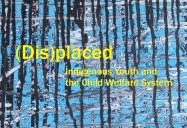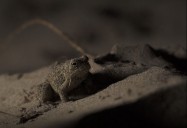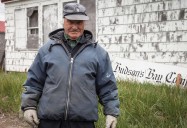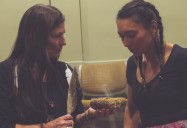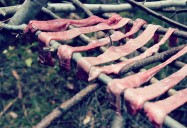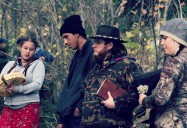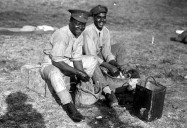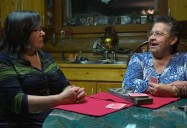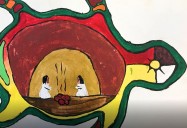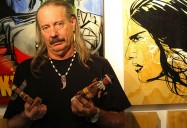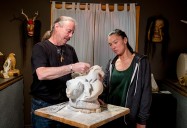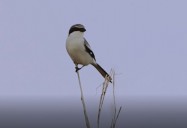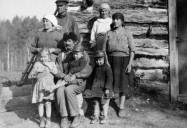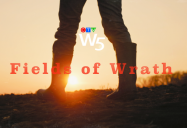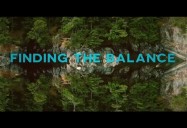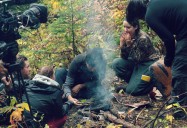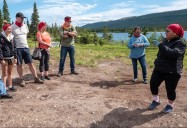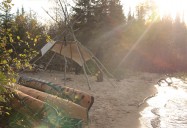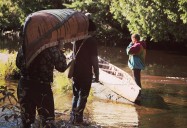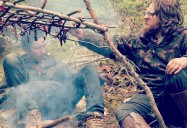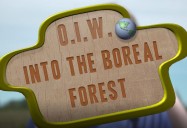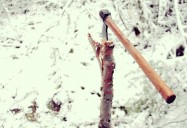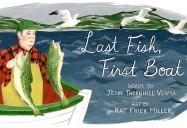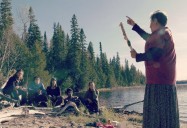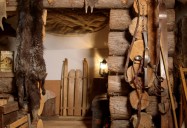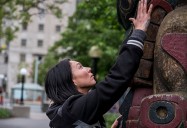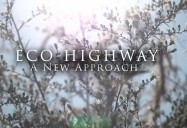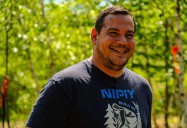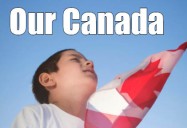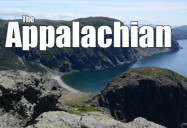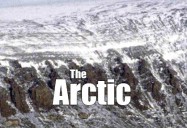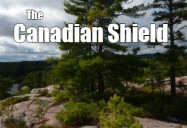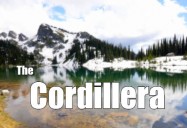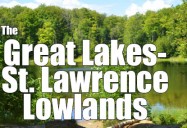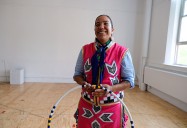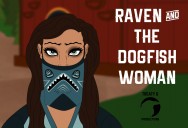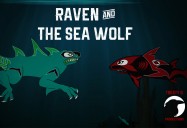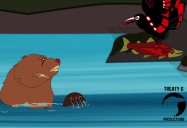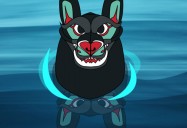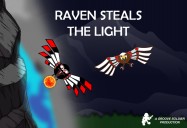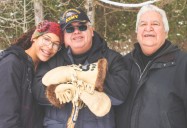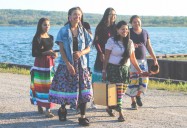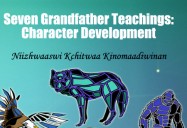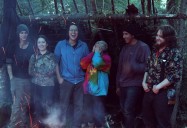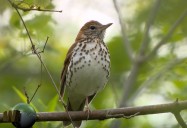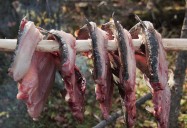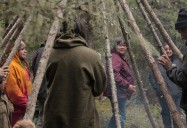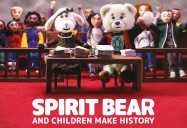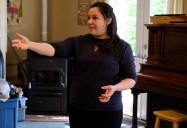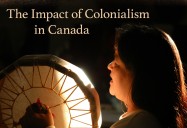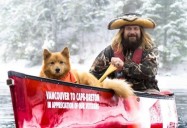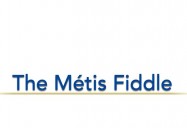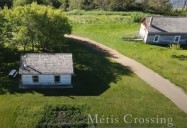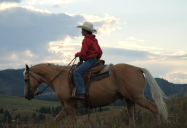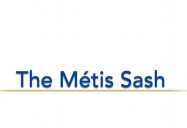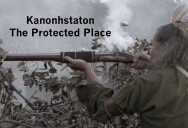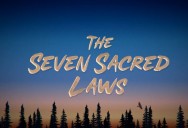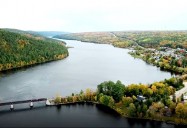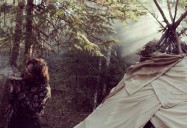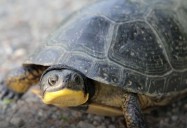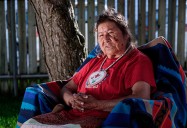
- TDSB: Art
- TDSB: Black History
- TDSB: Canadian & World Studies
- TDSB: Canadian Social Studies & First Nations
- TDSB: Career Studies & Character Ed
- TDSB: Equity & Diversity Studies
- TDSB: Financial Literacy
- TDSB: Food, Fashion & Clothing
- TDSB: Health & Phys Ed
- TDSB: Health/Safety/Abuse
- TDSB: Language
- TDSB: My Job Rocks Series - Career Education
- TDSB: PBS Playlist
- TDSB: Science
- TDSB: Social Sciences & Humanities
- TDSB: Social Studies
TDSB: Canadian Social Studies & First Nations
Our Canada - The Arctic
Width Height
Subject(s): Canadian Social Studies, First Nations Studies, Social Studies
Grade Level: 3 - 5, 6 - 8, 9 - 12
Canada's Arctic region is one of the world's most isolated regions, primarily composed of a large group of islands north of the Arctic Circle. It is an area of unusual landforms such as pingos, cirques and tors as well as an area of beautiful sites such as the aurora borealis. Special adaptations have had to be made by vegetation and wildlife in order for survival in this harsh environment. Despite its isolation, this is a region greatly impacted by climate change.
Includes PDF Resource Guide.
|
Running Time: 17:15 Country of Origin: Canada Captions: |
Producer: McIntyre Media Inc. Copyright Date: 2016 Language: English |
Video Chapters
-
The Arctic Region 01:47
Canada's Arctic region is one of the world's most isolated... -
Landforms in the Arctic 01:18
There are some very unusual landforms found in the... -
Climate in the Arctic 01:26
In the Arctic, winters are long and dark as the Earth moves... -
Arctic Ice 01:47
Indigenous hunters are very skilled at reading the ice and... -
Arctic Vegetation 01:51
A polar desert, the Arctic permafrost leaves little... -
Arctic Animals 01:24
There is much wildlife that calls the Arctic home. Marine life... -
Indigenous Peoples of the Arctic 04:12
In the Western Actic, many Inuvialuit live, descendents of the... -
The Resources of the Arctic 02:41
As recent discoveries are being made in the Arctic of minerals...
TRANSCRIPT
Close- When you think about Arctic Canada, what images come to your mind? Snow and ice? Cold winds? Maybe an igloo? Well, there's a lot more to the Arctic than that. The Arctic region of Canada is one of the world's most isolated places, far away from where most people live. It is mostly a large group of islands north of the Arctic Circle surrounded by Arctic Ocean.
- The Arctic Lowlands are in the southern section. The landscape of the Western Islands is flat plains with rolling hills and ridges of rock. The Eastern Lowland Islands are rockier with higher plateaus, fjords, and dramatic cliffs. Tides and rivers deposit mud in flats and water fowl breed in coastal wetlands and many small inland lakes.
- Two large lakes lie in the lowlands of Baffin Island. It is the largest island in Canada and has more than 11,000 people, mostly Inuit living there. Victoria Island is the second largest island in Canada and is bigger than the four Atlantic provinces combined. Banks Island in the west is bigger than Ireland, but has only 112 permanent residents. You'd probably know everyone on this island if you lived here.
- Further north, the Innuitian Region has a lot of younger mountains than those in the Western Cordillera or the Appalachians. Canada's Innuitian Mountains have high jagged peaks, characteristics of a younger mountain chain.
- Many people often don't realize that Canada does in fact have a third set of mountain ranges in the Arctic. The Queen Elizabeth Islands are found in the most northern area of the country. There are only two small communities in this vast area, with less than 200 people in each. Cape Columbia on Ellesmere Island is the most northerly point of land in Canada and is very close to Greenland. The remote Innuitians are still largely unexplored due to the cold climate.
- Some very unusual land forms are found in the Arctic. Pingos are cone-shaped hills that have a core of ice. They rise up from the flat tundra, looking like miniature volcanoes, and are found only in permafrost environments. On the Tuktoyaktuk peninsula, they were useful landmarks for aboriginal hunters.
- Cirques are rounded, bowl-shaped hollows carved out by glaciers on the top of mountains. Tors are distinctive rocky towers that rise above a smoother rock surface, formed by weathering over eons. Without a doubt, the most spectacular Arctic site occurs above the landforms. When the weather is cold and the night sky is clear, mysterious sheets of light called Aurora Borealis dance above the land. Scientists are still not quite sure what causes this phenomenon. But our aboriginal people in all the countries around the North Pole have stories about these northern lights.
- Climate in the Arctic region is colder on average than anywhere else in Canada. Winters are long and dark. When the North Pole is tilted away from the sun, it does not rise above the horizon at all for many days.
- In Grise Fjord, none of its most northern community, the sun does not rise above the horizon for most of December. Then in June, when the North Pole is tilted the opposite way, the sun stays above the horizon throughout the night. That's why they call it the Land of the Midnight Sun. Can you imagine how this would affect your sleep? People who live here get used to the extreme cycles of light and darkness. But visitors often find it difficult to sleep when the sun does not set.
- Even in July, daily temperatures average just 10 degrees. Take a jacket if you plan to visit the Arctic lands. In winter, temperatures average about minus 30 degrees and can drop as low as minus 50 degrees.
- Deep permafrost is widespread. Last century, the top layer of soil in the permafrost usually thawed in the summer to about one meter deep. But with climate change, the soil is now thawing closer to two meters deep. This will bring significant changes to the Arctic ecosystem.
- The North Pole is in the middle of the Arctic Ocean, which is completely covered with ice in winter. You could get to the North Pole by snowmobile or dog sled, as there is no land there. So don't expect to find Santa's workshop.
- Some of the Arctic ice is fused to the shores. But further out, pack ice moves with the ocean currents. Ice flows up to three meters thick alternately freeze together and break apart throughout the winter.
- Aboriginal hunters are very skilled at reading the ice and knowing when it is safe.
- The ice here is welcomed because it acts as a break water for stopping the waves from being so rough.
- When spring arrives, the sea ice begins to melt and people can use kayaks, zodiacs, and even small ships to move through the waters. But freeze up can begin again as early as August.
- Today, tourism is on the rise as [AUDIO OUT]
- Hundreds of years ago, European explorers hoped to find a way to get to Asia through the Arctic Ocean. But thick, year-round sea ice made this impossible. Now, in some summers, ships are able to get through the Northwest Passage. And it will likely become easier in the future.
- Canada has over 162,000 kilometers of Arctic coastline. The government is concerned about clearly establishing our rights to Arctic passages and to the resources lying under the Arctic Ocean. Canadian Force's ships and the Canadian Coast Guard are actively working to establish sovereignty.
- The Arctic Lowlands lie north of the Canadian Shield and above the tree line. Trees do not grow here because the summers are very short. Permafrost inhibits root growth. And there is little precipitation.
- The Arctic lands are a polar desert with snow, ice, and rock instead of sand. A desert? How can that be? It has so much snow. Desert, any region that gets very little precipitation each year. The Arctic actually receives a relatively little amount of snow each year. But due to the cold climate, much of it does not melt and stays on the ground, building up year after year.
- The Arctic is a surprisingly diverse bioregion. Fish and marine mammals live in the sea. Birds and land mammals thrive on the tundra. There are even some organisms living on the ice. Algae grow on the bottom of sea ice, providing important nutrients to marine life.
- Many species of vegetation have evolved to succeed in this climate. Mosses and lichen cling to bare rock. And sedges grow in wetlands and bogs.
- Permafrost is a layer of frozen soil and dead plants that can extend over 400 meters deep. The top layer of permafrost thaws just enough in summer that plants with shallow roots and dwarf shrubs can grow close to the ground. The long hours of sunlight help the plants grow quickly. Cup-shaped flowers follow the sun, absorbing as much heat as possible. The variety of colorful wildflowers in the summer tundra is amazing.
- Arctic animals have adapted to this extreme environment. Whales can hold enough air in their lungs to stay submerged for long periods of time. And their blubber protects them from the cold water. Narwhals are sometimes called the unicorns of the sea. They have one long tusk protruding from their heads.
- Seals dive deep into the ocean to feed on fish, then come back to rest on the floating ice. Walruses use their long tusks to help haul themselves on to ice flows after fishing in the ocean. Polar bears mate and raise their cubs on sea ice, feeding mostly on fat-rich seals. Ice is very important to life in the Arctic.
- Large herds of musk oxen feed on the tundra's low-growing vegetation in summer. Herds of reindeer and caribou migrate across northern landscapes and are an important resource for indigenous peoples. With climate change, the red fox is now moving northward, competing with the Arctic fox for food.
- Bogs and shallow lakes dot the tundra in summer. Here, millions of migrating birds breed and raise their young, feeding on masses of swarming insects. With climate change, the fall breeze now begins a bit later. And this could change the ecosystem.
- Canada's Arctic regions are the homeland of Aboriginal people who have a deep connection to the land. They traditionally relied on natural resources for their needs. In the Western Arctic, the Inuvialuit are descendants of the Thule people who came here over 1,000 years ago. They traditionally wintered in permanent sod houses. They use kayaks to hunt whales and traditional country foods including caribou, Arctic hare, goose, and berries.
- In 1984, the Inuvialuit Agreement was signed with the government, giving them control over their own land once again. Today, in the Hamlet of Tuktoyaktuk in the Northwest Territories, you can tour with an Inuvialuit guide to learn about life on the land, visit a fish smokehouse, and enjoy some traditional soup and [INAUDIBLE]
- Where the Mackenzie River empties into the Beaufort Sea, the Northwest Territories town of Inuvik is the homeland of the Inuvialuit people. They have a sunrise festival every year in early January when the sun once again appears above the horizon after nearly 30 days of darkness.
- In the Eastern Arctic, the Inuit are descendants of people who have been here for at least 4,000 years. The Inuktitut word Inuit means the people. The Inuit traditional nomadic way of life was to move from one camp to another with the seasons. Men hunted sea mammals from kayaks, and hunting is still important in Inuit culture. They often worked in groups, using their hunting, fishing, and trapping skills. They enjoyed eating the fresh meat and fish they harvested. But they also dried it or preserved it in oil.
- Dogs were important as hunting animals and also carried packs for the camps. Animal skins were used to make parkas, gloves, and waterproof sealskin boots. Bones and animals were used for tools. And grasses were woven into baskets.
- Blocks of firm snow were used to build igloos, which often included an ice window in the roof, a fur-lined sleeping platform, storage chambers, and an entrance passage. Smaller igloos are still used by the Inuit when they travel in winter. Sometimes skin tents served as movable shelters.
- Inuit have a spiritual connection with the land that is a strong part of their culture. Shamans were their spiritual leaders. And elders still tell traditional stories to teach life skills and explain the natural world.
- The family is the center of the Inuit culture. And sharing is an important principle. Competitions involving strength and endurance are featured in the Arctic Winter Games held every two years.
- Inuit soapstone carving is admired by people all over the world. Traditional music uses a drum made by stretching a skin across a hoop.
- [SINGING]
- Pairs of women perform throat singing, an art that can take years to master.
- [CHEERING]
- At Prime Minister Justin Trudeau's Swearing-In Ceremony, two Inuit throat singers made headlines for their traditional performance. 85% of the people of Nunavut are Inuit. In the capital city of Iqaluit, their government makes decisions by consensus, the traditional way. The sealskin-covered chairs in the Legislative Assembly are arranged in a circle. Their mace is made of narwhal tusk with gemstones from Nunavut.
- Aboriginal people in the Arctic today have challenges as a northern society. Fresh fruit, vegetables, and milk are very expensive because of the cost of transportation. Local food from the land is still very important. Also, access to health care and good housing is more limited because of the remote location.
- Recent discoveries of oil, minerals, and diamonds in the Arctic region are bringing new people to live and work here. The Innuitian Islands contain mineral resources such as iron and zinc, as well as fossil fuels such as coal. These natural resources again reflect the geologic history of how this area was formed millions of years ago.
- But much of the region's resources remain to be discovered. New economic programs are providing more employment in the Arctic. First Air, Canada's second largest airline, is Inuit-owned and operated. Offshore fisheries now catch Arctic char, polar cod, and pollock, some of the 200 species of fish living in these waters. The government is providing funding for scientific research taking place at the Canadian High Arctic Research Station.
- Tourism is becoming important in the economy of the Arctic. Adventure tourists travel to see wildlife, hike rocky trails, and boat into fjords. Summer campers visit national parks such as Aulavik. It is a polar paradise with crystal-clear rivers, breeding birds, and lush vegetation. Visitors hike on the tundra in summer and admire the colorful northern lights dancing in the winter sky.
- Travelers come north to learn about Inuit and Inuvialuit culture. On the streets of Iqaluit, Canada's youngest and smallest capital city, you may hear conversations in Inuktitut and see elders wearing traditional sealskin clothing as you visit art galleries and shop for treasures. As more and more people are making the Canadian north their home, the lives of indigenous people are changing. Internet service and satellite television make information much more readily available. More schools are being built. And new education programs are being developed.
- But climate change is making it harder for Inuit to get food in traditional ways. Structures built on permafrost are now shifting as it melts. However, Inuit people are working to improve the economic conditions in their communities. And Inuit governments and organizations will continue to work for improvements.
- The Canadian Arctic is a place where we still have the opportunity to safeguard an environment that has been barely touched by human activities. This video journey has shown you a bit of this very special place.
- [MUSIC PLAYING]
TRANSCRIPTS:
Interactive Transcript
Transcript (PDF)
